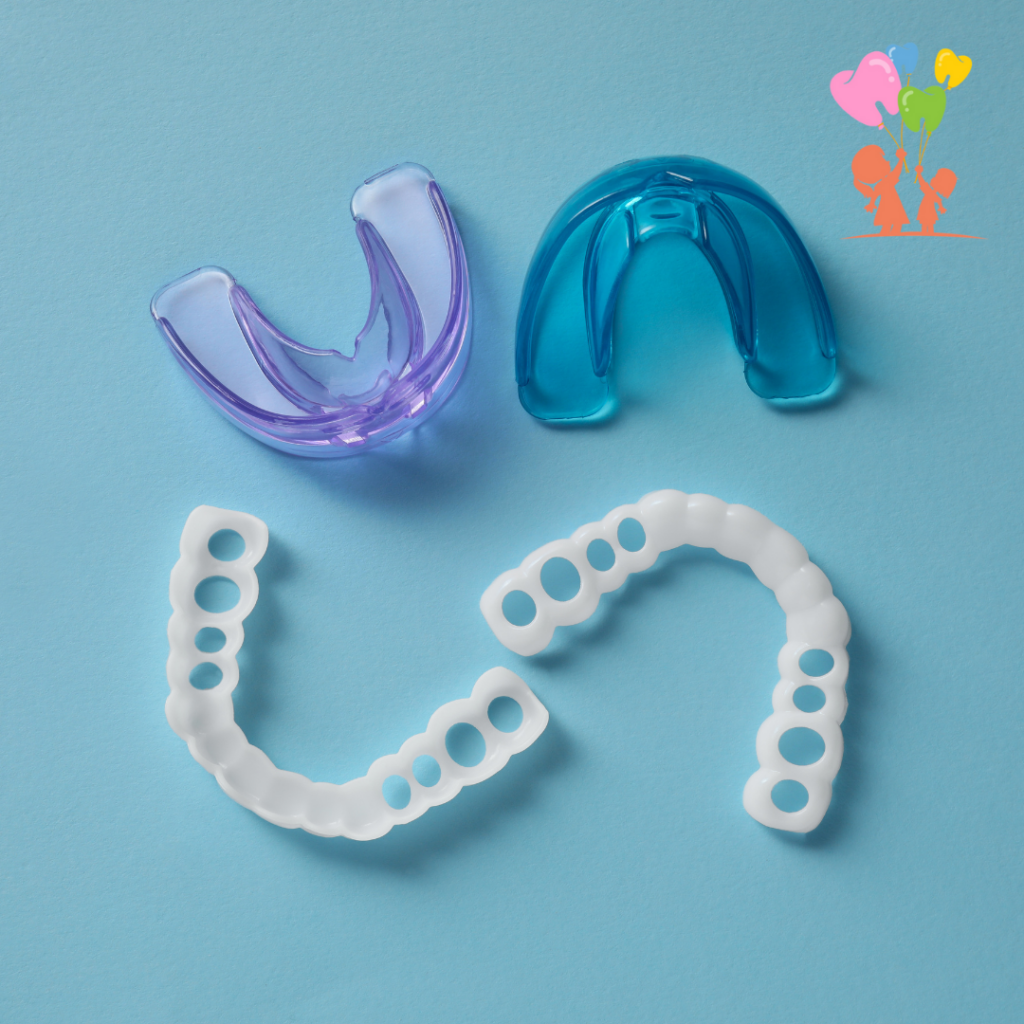Healthy smiles are at risk when young athletes step onto the field without the proper protective gear. This article zeroes in on the necessity of mouthguards to safeguard your child athlete’s teeth, outlining the types of dental injuries common in youth sports and explaining how mouthguards work. With this post, you’ll discover the powerful role mouthguards play in preventing dental trauma, learn tips for maintenance, and understand how to encourage their use, ensuring that your little sportsperson maintains a safe and healthy smile!
Dental Injuries in Youth Sports
Dental injuries are surprisingly common in children’s sports, with activities like soccer, basketball, and gymnastics posing a higher risk of tooth trauma. Young athletes are often vulnerable to falls, collisions, and impact injuries, which can lead to broken or displaced teeth. Wearing a mouthguard provides essential protection, reducing the risk of injury and keeping smiles safe while they enjoy the game. Prioritizing a well-fitted mouthguard is a simple step that can prevent painful and costly dental issues down the road!
Common Dental Injuries in Young Athletes
From chipped teeth to jaw fractures, recognizing the potential for these injuries is key to ensuring younger athletes receive the preventive care they need.
Common dental injuries in young athletes include:
- Chipped or fractured teeth
- Knocked-out (avulsed) teeth
- Displaced or loosened teeth
- Tooth intrusion (when a tooth is pushed into the jawbone)
- Cuts or lacerations to the lips, tongue, or cheeks
- Jaw fractures or dislocation
Selecting the Best Mouthguard for Kids Sports

Choosing the right mouthguard is essential for protecting your child’s smile during sports and other activities. Not all mouthguards are created equal; the best ones offer a comfortable fit, effective cushioning, and proper coverage to prevent dental injuries. Dr. Menon at Eastside Children’s Dentistry can help guide you in selecting a high-quality, custom-fitted mouthguard that ensures optimal protection for your little one’s teeth and gums.
When choosing a mouthguard for your child, consider these tips:
- Proper Fit: Ensure the mouthguard fits snugly and comfortably without being too loose or tight.
- Breathability: Choose a mouthguard that allows your child to breathe and speak easily while wearing it.
- Material Quality: Look for high-quality, durable materials that can withstand impact and provide maximum protection.
- Custom Fit Option: A custom-fitted mouthguard offers better protection and comfort compared to over-the-counter options.
- Ease of Cleaning: Select a mouthguard that’s easy to clean to maintain good hygiene and prevent bacteria buildup.
- Sport-Specific Needs: Some sports require specialized mouthguards; check if there are any specific recommendations for your child’s activity.
- Growth Flexibility: For younger children, consider a mouthguard that can accommodate growth or be adjusted if necessary.
Consult a Dentist for Custom Mouthguard Options
When you consult with a pediatric dentist like Dr. Menon, you’re taking a proactive step towards custom mouthguard options that provide unparalleled fit and protection for your child athlete. These protectors are molded to the unique contours of your child’s mouth, ensuring comfort and stability that off-the-shelf solutions may not offer. You’re investing in your child’s dental safety, preventing injuries that could be costlier and more distressing down the line.
Benefits of Mouthguards for Young Athletes’ Safety
Appropriately fitted mouthguards are instrumental in preventing tooth fractures, knocked-out teeth, jaw fractures, and more, and can effectively reduce the risk of soft tissue injuries within the mouth.
Prevent Tooth Fractures
Equipping your child with a properly fitted mouthguard is a critical step in preventing tooth fractures, which are all too common in youth sports. These protective devices absorb and disperse the forces of impact, shielding your child’s teeth during the roughest of plays.
Reduce Risk of Soft Tissue Injuries in the Mouth
Ensuring your child wears a mouthguard during sports goes beyond protecting their teeth; it significantly lowers the risk of injuries to the lips, tongue, and inner cheeks. Mouthguards act as a barrier between the soft tissues of the mouth and hard surfaces like teeth, braces, or sporting equipment, curtailing cuts, bruises, and more serious lacerations.
Minimize Chances of Jaw Injuries
Wearing a mouthguard while playing sports can also greatly reduce the likelihood of jaw injuries for your child athlete. A forceful impact to the chin or side of the face during athletic activities can result in more than just tooth damage; it can lead to a fractured jaw, which is both painful and complex to treat. A well-fitted mouthguard acts as a shock absorber, distributing the force of impact and offering substantial protection against such severe injuries, allowing your child to participate safely and with confidence.
Encouraging Mouthguard Use in Children’s Sports

Ensuring your child athlete wears a mouthguard is key to their dental safety. Parents and coaches play a pivotal part in this, and can promote mouthguard use effectively. Adopting team policies for mandatory mouthguard wear and providing incentives for consistent use can further enhance compliance. These strategies work hand in hand to keep your child’s teeth protected during sports activities.
Educate Young Athletes About Dental Safety Importance
Instilling an awareness of dental safety in young athletes is key to a lifelong commitment to protecting their teeth during sports. As you encourage your child’s athletic pursuits, emphasize the importance of wearing mouthguards to shield against injuries that could sideline them from the game and lead to extensive dental work. It’s not just about wearing any mouthguard, but ensuring they have one that fits properly and comfortably for maximum protection.
Involve Parents and Coaches in Promoting Mouthguards
Involving parents and coaches in promoting mouthguards is central to reinforcing their importance for your child’s dental safety in sports. When both parents and coaches illustrate that dental safety is non-negotiable, your child perceives mouthguard use as a standard aspect of athletic participation, fortifying their dental well-being on the field.
Implement Team Policies Requiring Mouthguard Wear
Working together, teams and leagues can set a new standard in child athlete safety by instituting mandatory mouthguard policies. Such regulations not only underscore the significance of dental protection in sports but also foster a culture where children’s safety is paramount.
Provide Incentives for Consistent Mouthguard Use
Providing incentives for consistent mouthguard use is an effective strategy to reinforce their importance for your child’s safety during sports. By recognizing and rewarding your youngster’s commitment to wearing a mouthguard, you not only commend their dedication to dental protection but also encourage their peers to follow suit.
Caring for and Maintaining Your Child’s Mouthguard
Ensuring your child’s mouthguard remains in top condition is as crucial as selecting the right one. You’ll need to clean it thoroughly after use, store it properly to avoid damage, inspect it for signs of wear, and know when it’s time for a replacement. These crucial steps maintain the mouthguard’s integrity and ensure ongoing protection during sports activities.
Clean the Mouthguard After Each Use
Keeping your child’s mouthguard clean is essential for oral health and safety. After each use, rinse it thoroughly with cold water and brush gently with a toothbrush to remove any debris. This practice not only prolongs the life of the mouthguard but also ensures that it remains hygienic, protecting your youngster from bacteria and odors. Always allow the mouthguard to dry completely before storing it—this simple routine will help maintain its protective qualities and your child’s comfort during every game.
Store the Mouthguard Safely to Prevent Damage
Protecting the mouthguard from possible harm is as important as its use during games. A proper storage case not only maintains its shape but also guards against external contaminants that could compromise its effectiveness. Always ensure the case is ventilated to allow the mouthguard to dry out, preventing the growth of bacteria. This careful storage of your child’s mouthguard is an essential step towards ensuring they can always play it safe on the field or court.
Inspect Regularly for Wear and Replacement Needs
Regular inspection of your child’s mouthguard is crucial for ongoing dental safety, allowing you to spot signs of wear or damage that could compromise its protective capabilities. Considering how actively your youngster engages in sports, it’s essential to examine the mouthguard periodically for any tears, thinning, or structural weaknesses. Should you notice any irregularities, replacing the mouthguard promptly can prevent unexpected dental injuries during activities.
Take the Next Step in Protecting Your Child’s Smile on the Field — Call Today for a Consultation!
Protecting your child’s smile on the field is one of the best investments you can make in their oral health. A well-fitted mouthguard not only shields their teeth from injury but also gives you peace of mind while they enjoy the sports they love. Ready to take the next step? Give Eastside Children’s Dentistry a call today at 440-708-1331 to schedule an appointment! We’re ready to help however we can!
